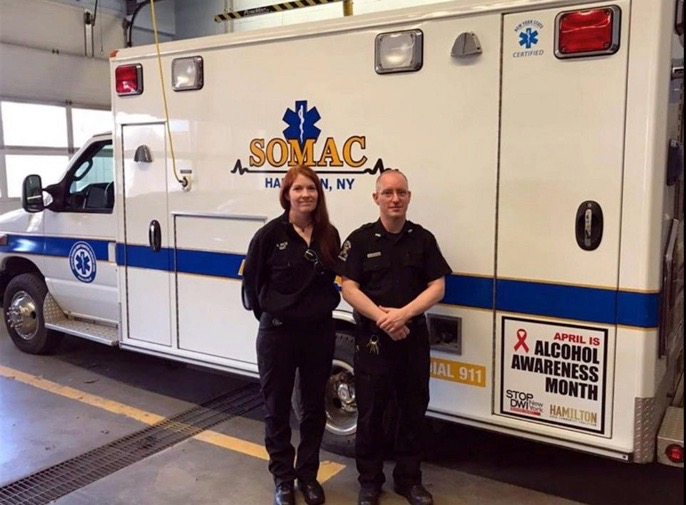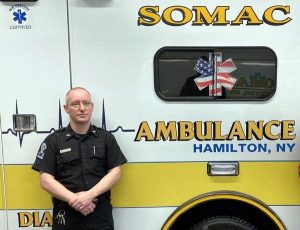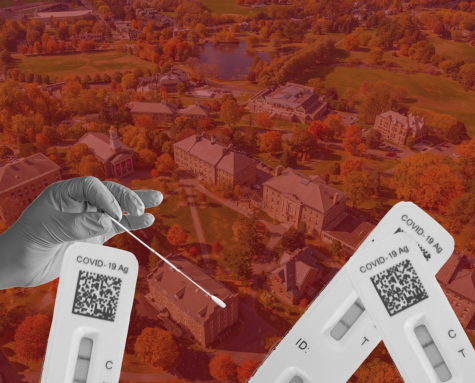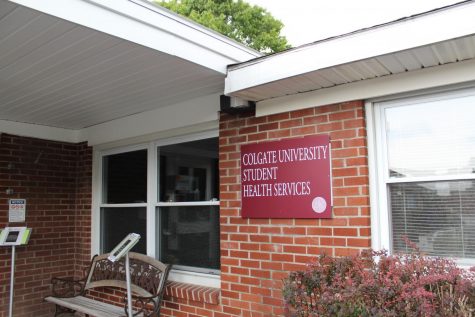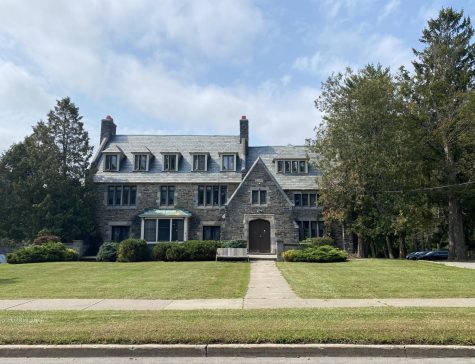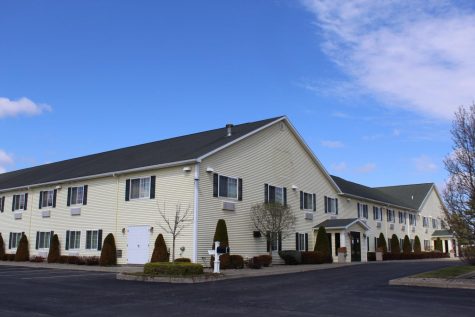SOMAC Receives Over 30 Applications Following Urgent Call for Volunteers
Southern Madison County Volunteer Ambulance Corps (SOMAC) has received an influx of applications for open positions following a notice released on Saturday, March 21, detailing an urgent need for community volunteers due to the loss of more than 40 Colgate student volunteers in light of the COVID-19 pandemic.
Head Paramedic and Director of Operations for SOMAC Kyle Sylvester said he voiced his concerns to Colgate regarding sending students home a day before the official announcement went out.
“We, being medical professionals, would have no problem keeping them safe with our increased infection control that had already been in progress. I did warn that it would have a huge effect on our ability to handle the transfers and 911 calls,” Sylvester said. “I heard [that students were leaving] like everybody else when I saw the announcement online. I had no idea ahead of time that was going to happen.”
Sylvester explained that since the student volunteers left, SOMAC has had a major decline in 911 calls due to the remaining population of Hamilton staying home. However, challenges arise due to the increase of emergent and non-emergent transfer services which SOMAC typically provides.
“The media has been doing a good job at keeping them home where they will not infect others in the hospital or doctor’s office or contract the virus in the same places. For this reason we have had no problem handling the low volume of 911 calls,” Sylvester said. “The problem has been being able to handle transfers out of the hospital to other hospitals for higher levels of care. While we are able to maintain two Paramedic ambulances from 7 a.m. to 3 p.m. Monday through Friday, [after those hours], we only have one of three ambulances manned due to low manpower so [we] are not able to help the hospital with the transfers.”
As outlined in a new press release sent out Saturday, April 4, SOMAC now looks to fill Emergency Medical Technician (EMT) and part-time Paramedic positions. According to Sylvester, the response to the first notice has been overwhelmingly positive.
“I only expected a few people, [maybe] less than 10, to respond to the press release as they will potentially be putting themselves at greater risk [while] volunteering for SOMAC in a state of emergency. As of [Sunday, April 5] I have 47 applications, [including] over 30 applications to volunteer and two for paid spots in a few days. The majority of [applications] being drivers and only a few EMTs, we now have nearly three times as many drivers as we have trained health care providers and we need both to fully staff a call,” Sylvester said. “We are boarding as many as we can daily to be able to man the three ambulances more often to prepare for the expected increase in transfers and 911 calls as people become sicker with time.”
First-year Natella Kurdevanidze, who remains living on campus, said she feels more secure in her decision to stay given the strengthening of local health services’ ability to respond.
“[With case numbers expected to rise], I feel it’s great. It makes me even more appreciative of the community of Hamilton, who managed to put together all their effort to help out each other in such a difficult time. I feel very grateful for that, and definitely, I’ve been feeling much safer in comparison to some places in the rest of the world,” Kurdevanidze said.
SOMAC Co-Student Coordinator and senior David Little added that the reaction reflected the strength of the Hamilton community.
“In times like this, it is important to lend a hand to those who are on the frontlines and the response to SOMAC’s call for help shows how strong a community Hamilton is,” Little said. “I’ve seen posts on Nextdoor Hamilton about people making masks, heard stories of people who have volunteered to drive ambulances and witnessed so many other ways people have been supporting SOMAC.”
Due to the current state of emergency, Sylvester explained that SOMAC policy has changed in order to be able to board new members quickly and more efficiently.
“The rules have been relaxed due to being in a state of emergency, leading to the ability, in many ways, to board somebody faster so they are ready to drive for us. [Relaxed policies include] how many days they need to be out driver training in the ambulances before being on their own. Normally we only train one person per crew, now we are splitting up the EMT and Paramedic from our 24/7 paid crew into two ambulances to train two new drivers at a time,” Sylvester said.
Though usual policy has been relaxed, the current boarding process involves a thorough screening of applicants for COVID-19 and any underlying health risks.
“We are also putting the older [applicants], those that have compounding health concerns [and those with] family at home who are immunocompromised on a standby list to reduce their potential exposure. If things get bad we may have to board them also,” Sylvester said. “I have already put a few [applicants] on a two week voluntary isolation due to having symptoms, [who] will be followed up with after the two weeks.”
With the likelihood of the volume of SOMAC’s transfer services increasing in response to the COVID-19 crisis, Sylvester stressed the importance for SOMAC to prepare for the worst case scenario.
“We have not turned down any of the applicants as they have met our requirements and passed the COVID-19 screening,” Sylvester said. “We can have all the drivers we want but we also need healthcare providers to partner them up with. We are rather short on EMTs and paramedics and so far only two who applied are EMTs and one is brand new so will not be able to be the sole provider in back of the ambulance until they go through our training program to be on their own.”
However, according to Sylvester, the unpredictability of the pandemic makes it extremely difficult to foresee possible future challenges.
“There have already been hospitals and ambulance services closing due to losing more than 50 percent of their staff. We are screening each other every 12 hours and doing everything possible to prevent any of our staff from becoming exposed and or infected. Right now we have two members on a two week quarantine due to being exposed at other jobs. So far we are coping well but the peak has yet to hit us. ”


